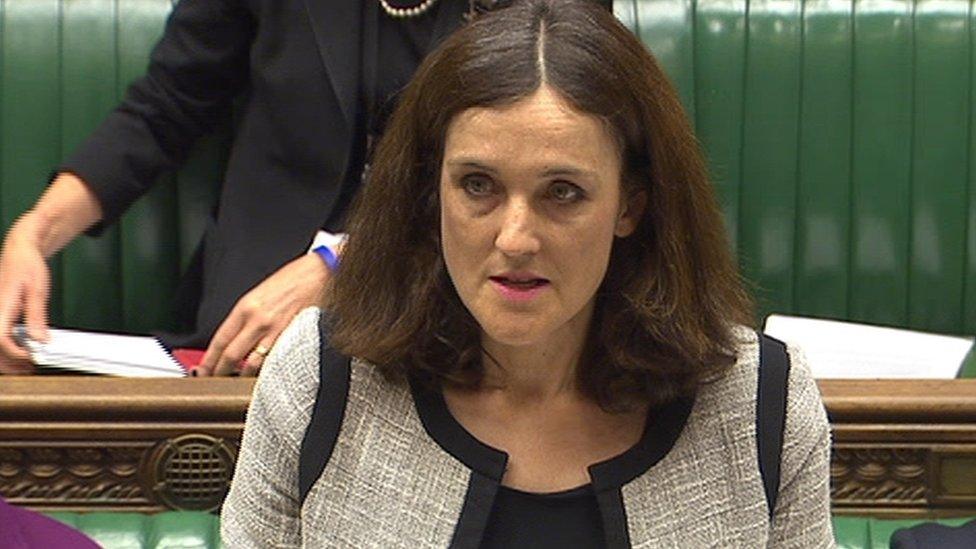Stormont crisis: NI paramilitary assessment due later
- Published
The report will assess the current status of paramilitary groups in Northern Ireland
An official assessment of paramilitary activity in Northern Ireland, compiled by the police and the security service, is due to be published later.
The DUP has indicated its ministers may return to their posts full time if the report says the Provisional IRA has not sanctioned terrorist or criminal acts.
The report was commissioned after the murder of Kevin McGuigan Sr in August.
The police's belief that current IRA members may have been involved in the killing led to a political crisis.
Sinn Féin insists that the Provisional IRA has gone away and no longer exists.
'Does the IRA 'army council' still exist?'
The Ulster Unionist Party (UUP) pulled its only minister out of Stormont's power-sharing government - the Northern Ireland Executive.
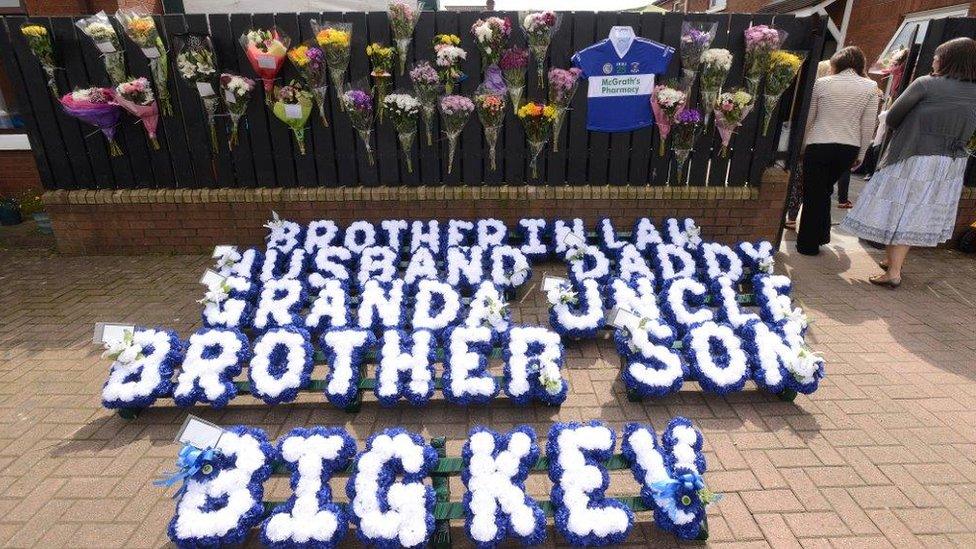
Former IRA man Kevin McGuigan was shot dead outside his east Belfast home in August
Deadlocked
The largest unionist party in the executive - the Democratic Unionist Party (DUP) followed suit with their tactic of rolling ministerial resignations.

The story of Stormont's crisis
Stormont's political upheaval was sparked by allegations that Provisional IRA members were involved in the murder of Kevin McGuigan Sr
The row erupted after a senior Sinn Féin member was arrested as part of the inquiry into Mr McGuigan Sr's death. He was later released without charge.
Northern Ireland First Minister Peter Robinson stepped aside and all but one of his DUP ministers resigned
Finance Minister Arlene Foster is now acting first minister
Read more: How Stormont's crisis unfolded

With talks at Stormont deadlocked, Northern Ireland Secretary of State Theresa Villiers asked the police and MI5 to provide a detailed assessment of paramilitary activity.

The issues the panel will have considered
Did the Provisional IRA leadership sanction the murder of Kevin McGuigan?
Does the IRA's ruling army council still exist?
If it does, why?
To what extent are IRA members involved in criminal activity?
Is that criminality sanctioned by the organisation's leadership?
What are the leadership structures of the main loyalist paramilitary groups?
To what extent are loyalist paramilitaries involved in criminal activity?

Three assessors - a Liberal Democrat peer, a Belfast barrister and a former senior Stormont official - have been looking at the report on the paramilitaries.
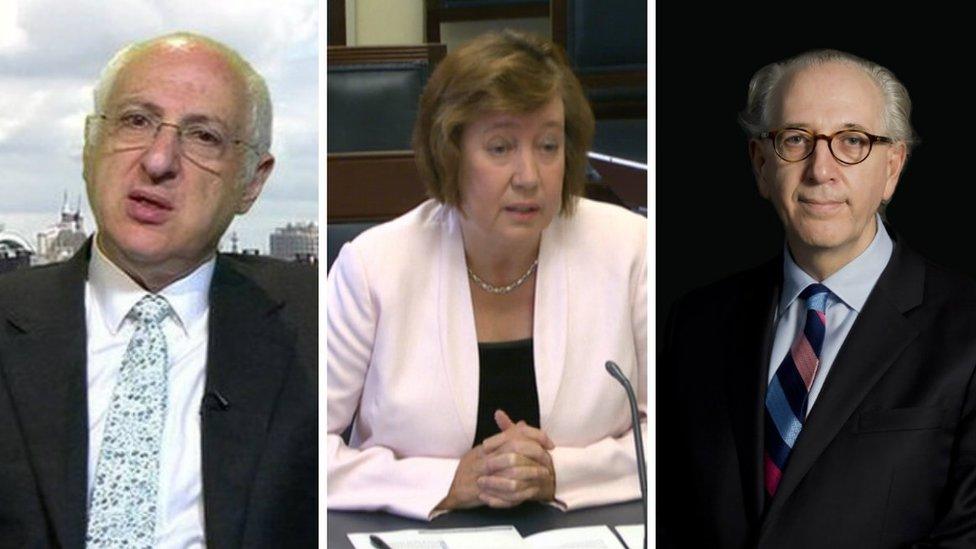
Lord Carlile of Berriew QC, Rosalie Flanagan and Stephen Shaw QC were appointed to give an independent assessment of the current status of paramilitary groups in Northern Ireland
The report is due to be published on Tuesday and will be accompanied by a statement in the House of Commons at 13:15 BST by Ms Villiers.
Paramilitary review 'only the tip of intelligence iceberg'
If the DUP is satisfied by what the report says, it is thought their ministers could return to their jobs.

Analysis: Mark Devenport, BBC News NI political editor
The government commissioned this assessment of paramilitary activity when the Stormont talks appeared to be close to collapse.
The DUP felt under pressure to show its anger about reports linking the IRA to a murder, after the Ulster Unionists, the only other unionists in Stormont's power-sharing coalition, quit.
By ordering this report the Northern Ireland secretary has bought the time and space for the DUP to return to round table talks.
If they like what the report says, DUP politicians are expected to end their ministers' "rolling resignations" and return to their jobs full time.

The DUP has said its "no business as usual" policy proved more responsible than outright resignations, which would have collapsed the Stormont Executive.
The DUP's opponents are already accusing them of using the paramilitary assessment as a "fig leaf" to return to power.
They may counter that, in the long term, their "no business as usual" policy proved more responsible than outright resignations, which would have collapsed the Stormont Executive.

Other major problems, however, such as the disagreement between the parties over welfare reform, remain to be resolved.
On Monday, Acting First Minister Arlene Foster told the Northern Ireland Assembly that paramilitary structures appeared to still exist in many communities.
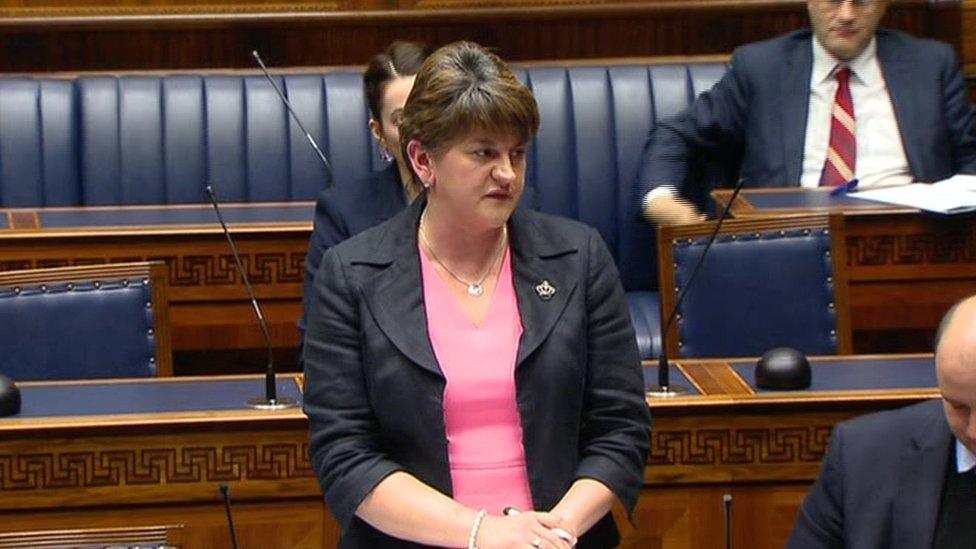
Acting First Minister Arlene Foster said the apparent existence of paramilitary structures must be dealt with
"Despite the fact that we have had a long period of time under which those structures should have disappeared they have not, it appears, disappeared and therefore we have to deal with that issue," the DUP minister said.
"We will wait to see what the panel brings forward tomorrow, but if the panel says that those structures are still in place we will need to look at how we can make sure that they come to end and that, certainly, will be the focus for me and for my party."
- Published20 October 2015
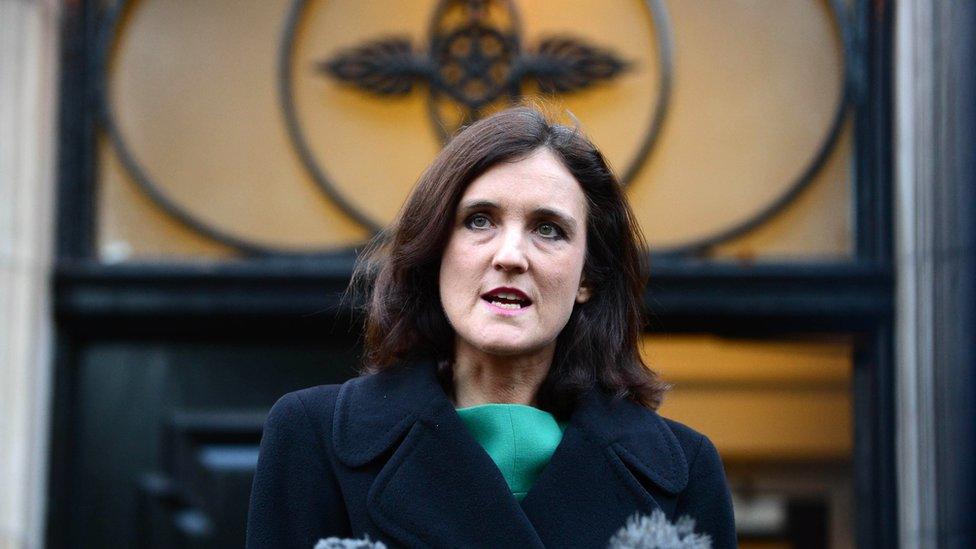
- Published20 October 2015
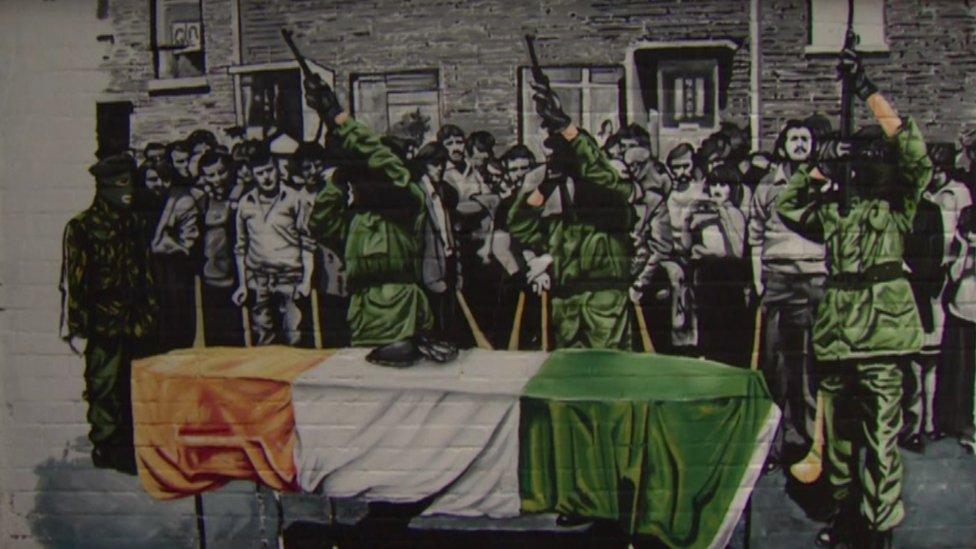
- Published13 November 2015
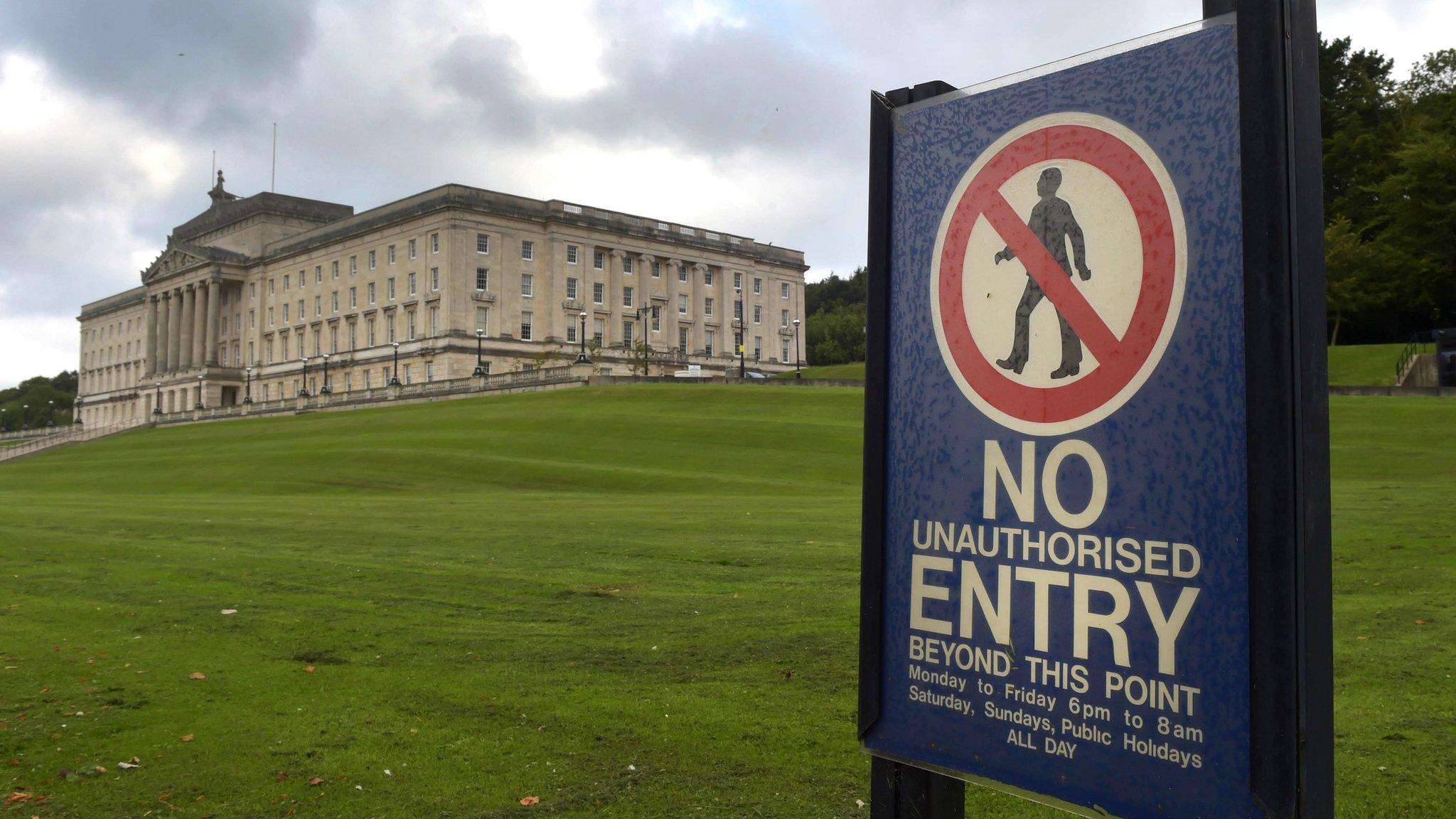
- Published20 October 2015
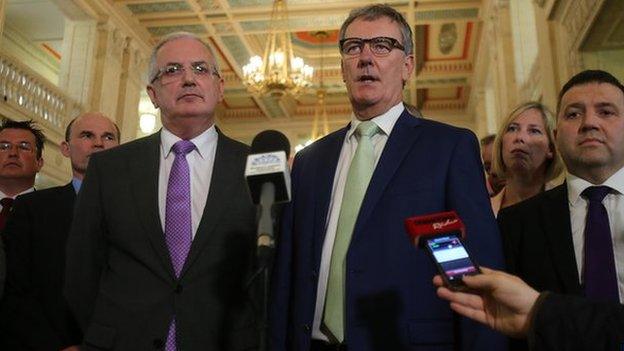
- Published8 October 2015
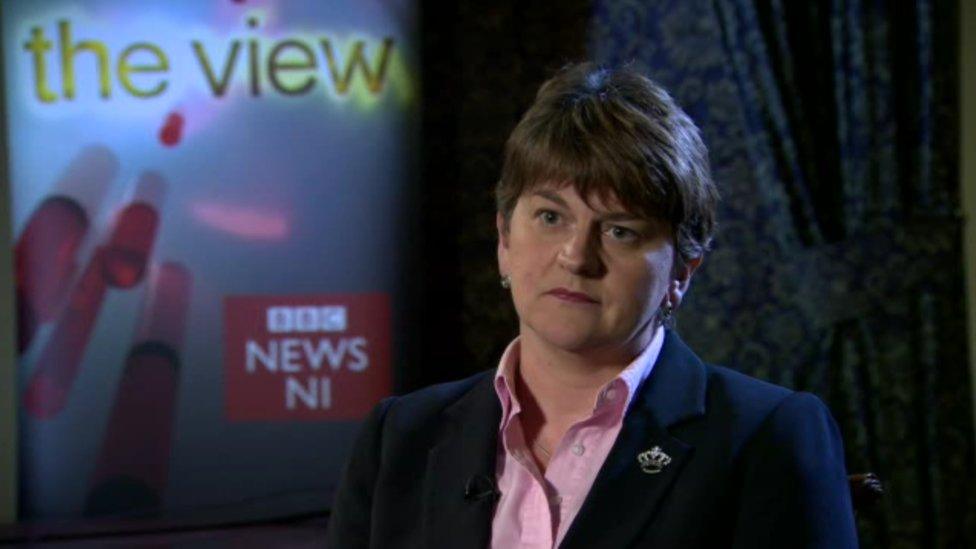
- Published22 September 2015

- Published15 September 2015
